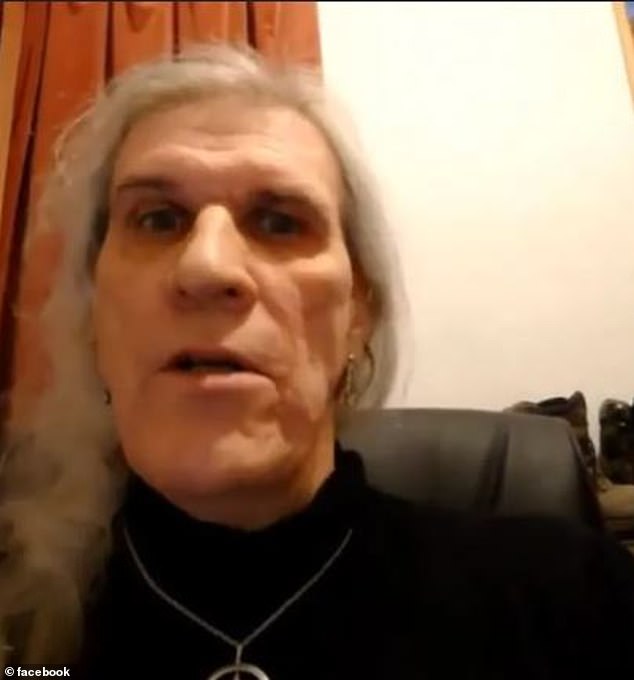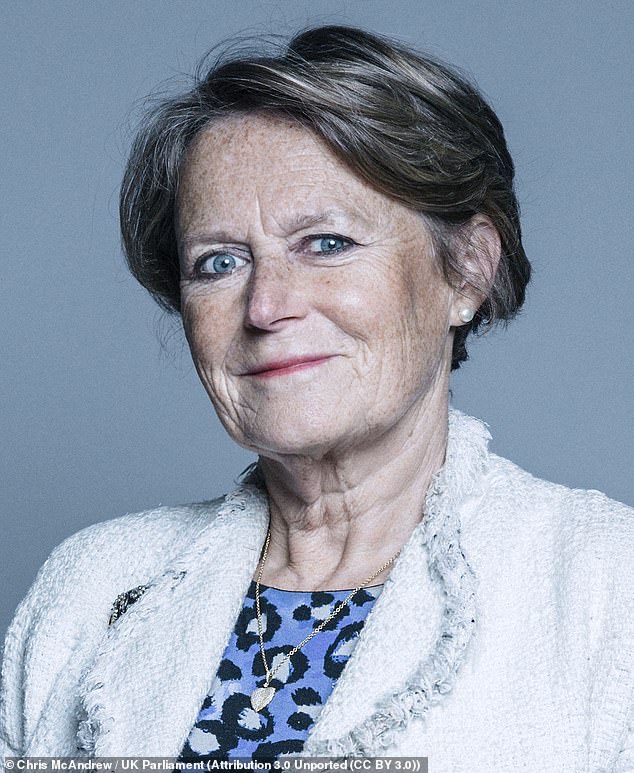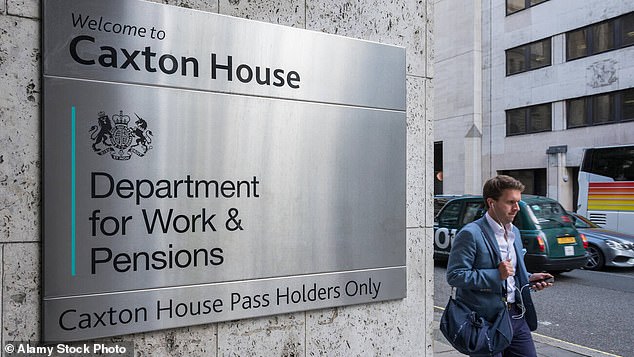Transgender civil servant sparks uproar after colleagues complain that she wears ‘fetish gear’ into the office
A government department is embroiled in a curious dispute over whether staff are allowed to wear “fetish clothing” at work after officials received complaints about a transgender colleague, The Mail on Sunday can reveal.
Workers at the Department for Work and Pensions are objecting to a colleague’s ‘highly inappropriate’ work attire, prompting a Conservative peer to question the government last week about its ‘policy on the wearing of fetish wear by civil servants in the workplace’.
Baroness Jenkin of Kennington reportedly asked the unusual question to express her general concerns about the dress code and also in response to specific issues raised by officials about a Whitehall diversity ambassador.
Saorsa-Amatheia Tweedale, a trans woman who works for the DWP, has previously been criticised for saying that trans children’s demands for puberty blockers should take precedence over the wishes of their ‘parents’.
The civil servant, who co-chairs the Civil Service LGBT+ Network, has also been criticised for linking women’s rights groups to the far-right and suggesting they are calling for genocide against transgender people.
Colleagues of Saorsa-Amatheia Tweedale, a trans woman who works for the DWP, have complained about her work clothes, which include fishnet tights, black scoop-neck corsets, high heels and a gothic choker with a pentagram at work.

Pictured: Saorsa-Amatheia Tweedale

Baroness Jenkin of Kennington (pictured) is understood to have raised general concerns about the dress code at the DWP and also in response to specific issues raised by civil servants about Whitehall’s diversity ambassador
Now Tweedale, 58, is in the news again. Colleagues claim their colleague regularly wears fishnet tights, plunging black corsets, high heels and a gothic choker with a pentagram on it to work, in what they say is ‘almost fetish wear’.
A well-placed source told the MoS: ‘At one point it looks like Gothic evening wear, but actually it’s very strange. If you had a female member of staff coming to work like that every day, you’d have to have a conversation.
“If you were working in a bank or some other office job, you wouldn’t be able to wear that kind of thing, whether you’re a woman or a man. Gender is relevant, but it’s absolutely inappropriate clothing to wear.”
They added: ‘He is funded by taxpayers’ money and he represents civil servants. There is an expectation that people in their role represent their department and that they look appropriate for that role.’
DWP staff are expected to dress professionally and businesslike. Complaints about staff will be reviewed.

Signs outside the entrance to Caxton House at the Department for Work and Pensions (DWP), Tothill Street, London, SW1, England, UK
The move follows a long-standing dispute between the DWP and some civil servants, after they wrote to permanent secretary Peter Schofield in August 2023 warning of the “chilling effect” of gender ideology and the “unlawful imposition of these views across the Department”.
The letter, seen by this newspaper, says they feel “cruel, prejudiced and transphobic” because they disagree “that any man who says he is a woman is actually a woman.”
It continues: ‘Lesbians and women in general are being silenced in the workplace and our rights are being undermined.’
The letter also specifically singled out Tweedale, who they said had “played a key role in the attempted ideological takeover” of the department and “argued that any disagreement with gender identity theory is far-right, transphobic and exclusionary”.
A major concern was Tweedale’s position as national diversity ambassador for transgender issues for the DWP. The civil servant advertised online profiles and used them to provide training on ‘transgender issues’ within the civil service.
In response to the letter, the Permanent Secretary’s office confirmed in an email that ‘we do not have a national diversity ambassador for trans issues for DWP’.
In the email, they responded to other concerns: “I can assure you that my team and I are working closely with Peter and our departmental diversity and inclusion ambassadors to ensure that everyone in the workplace is treated with respect, regardless of different backgrounds, beliefs and perspectives, and in line with our DWP values.”
Last month, Tweedale was awarded an honorary doctorate by the University of Bradford in recognition of her career in ‘helping people through trade union membership’ and also for ‘her work in diversity and equality’.
A DWP spokesperson said: ‘We do not comment on individual personnel matters.’
Saorsa-Amatheia Tweedale was repeatedly asked for comment.
